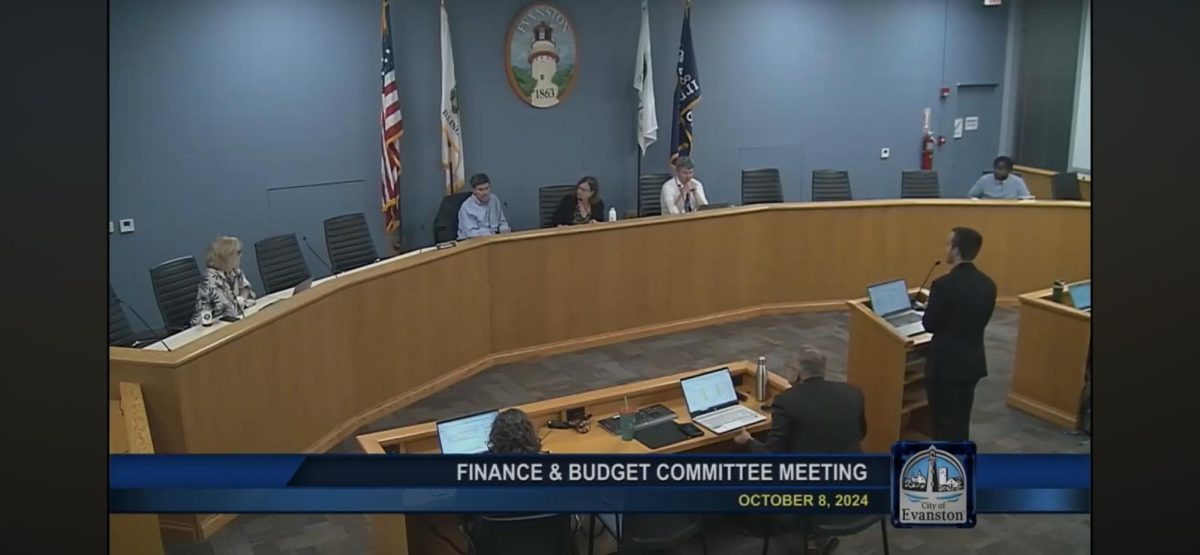2025 is right around the corner, and along with the new year, there is a new City of
Evanston budget that was proposed by the city manager, Luke Stowe. This new budget will be implemented to support the city’s goals of economic growth, public health and safety, housing, and climate action. However, there may be an upcoming tax rate rise to prevent the city’s overall budget from plummeting.
“Our 2025 Proposed Budget reflects our commitment to a healthy and thriving Evanston while delivering high-quality service to our residents,” Stowe said in an official announcement. Multiple taxes and fees fund the city, all paid by property owners, businesses, and citizens.
The 2025 Proposed Budget includes the spending of $342,151,643. This number is a 13.4% decrease from the previous 2024 Adopted Budget. The decrease is mostly caused by the ending of large-scale capital projects, such as the water intake replacement project since it is now closer to completion.
The city’s primary operating fund, The General Fund, shows $138,762,935 in revenues and inter-fund transfers, along with $151,278,402 in expenses and inter-fund transfers.
This new proposed budget also plans to increase the water rate of the city by 23.3% in order to fund lead pipe replacement, along with sewer rates that are predicted to decrease by around 13.5%; along with accommodating the expenses associated with water main replacement and the City’s Lead Service Line Replacement Workforce Development Program.
Some Evanston experts believe that based on the budget, 2025 may be the last year Evanston can hold off hiking property taxes since the proposal clarifies that there will be no property tax increase for city operations. This will cause structural deficits for large building and construction projects that are already in progress. Namely, the Ryan Field Project, and the reserve spending. Stowe wrote in his transmittal letter to the city council, that if the city continues to spend the General Fund’s balance as it is proposed for 2025, it would plummet below the city’s minimum balance policy by 2026 unless the tax levy is increased.
The city council adopted a new pension policy that put the city on the path to giving 100% funding to public safety pensions. This pension policy was established in July 2023 and is still going to be in effect in the years to come. Along with the public safety pension, there was also a proposed Capital Improvement Plan, that intends to spend a divided $86.8 million in different city improvements such as park rehabilitation, city facility repairs and upgrades, street resurfacing, and transportation projects for instance crosswalk and streetlight improvements, along with funding for solar infrastructure.
Predominantly, the annual budget focuses on the city’s main priorities, and it is an important policy that sets the city’s financial course for the upcoming year.












